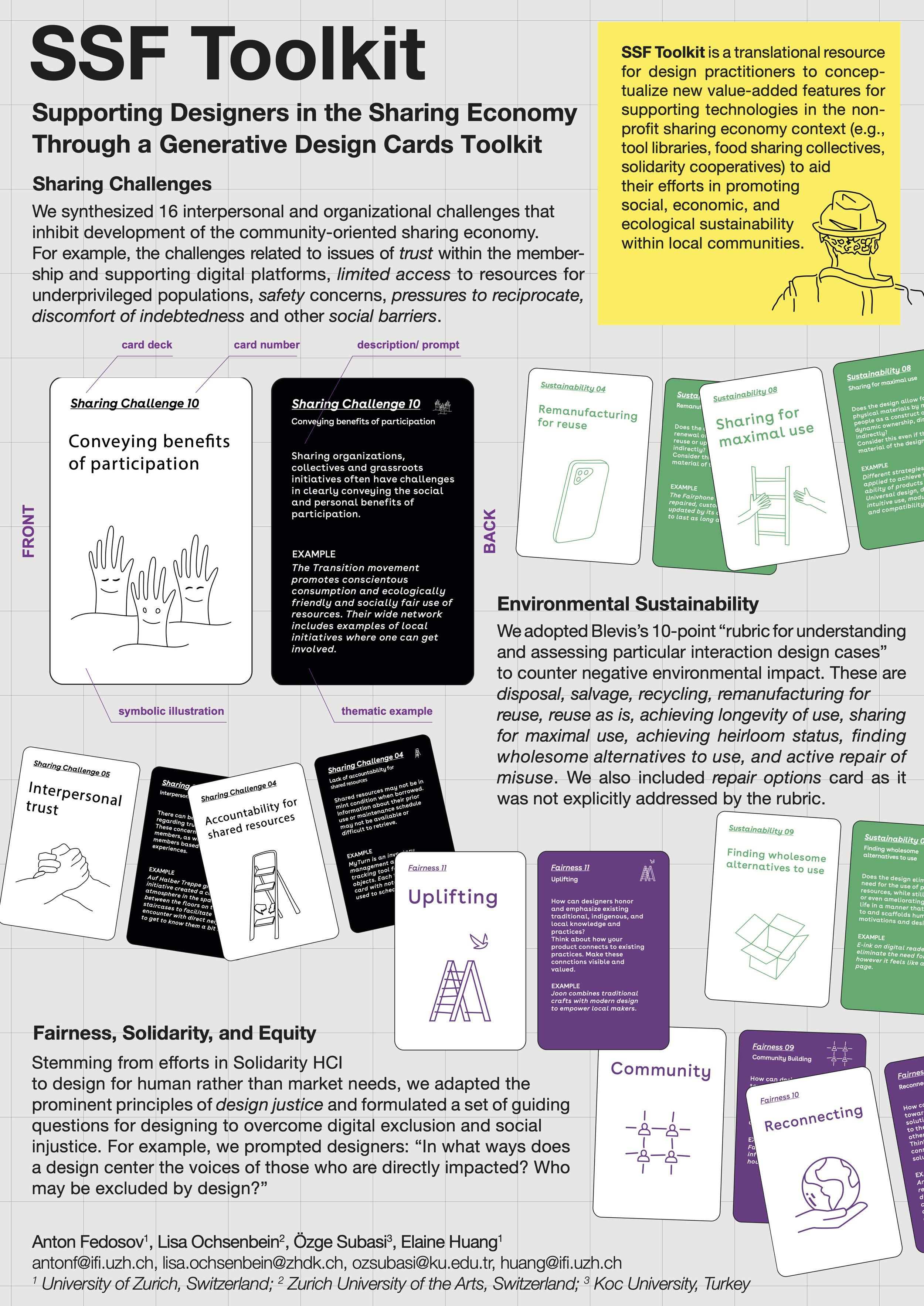Sharing Sustainability Fairness Toolkit
type
Design Research
Field Study
method
Design Workshop
period
2021-2022
―
Is the sharing services equitable and sustainability-oriented? To approach this question, I developed a toolkit for design practitioners to conceptualize new value-added features for supporting technologies in the sharing economy context.
Together with a few colleagues interested in design activism, I designed and developed the Sharing Sustainability Fairness cards toolkit targeting primarily product, service, interaction, and user experience designers. We envisioned that the cards could be used in generative research tasks, where multiple stakeholders (i.e., researchers, designers, technologists, and product owners) conceptualize and design product/service features collaboratively. While we primarily envision the cards as a tool for inspiration and awareness for designers and design students engaging in creative group work, we can also foresee that they could be used to support reflection in individual design activities.
The SSF toolkit covers three themes drawn from research to support designers in promoting sharing and cooperativism, environmental and social and design justice: (1) sharing community challenges; (2) environmental sustainability aspects in interaction design; and (3) fairness, solidarity, and equity. There are 38 cards in the deck: the sharing challenges set contains 16 cards; the sustainability and fairness sets have 11 cards each. For each card we offered practical examples, which characterize described concept.
Project in collaboration with Lisa Ochsenbein from Zurich University of the Arts (Switzerland), Özge Subasi from Koç University, Istanbul (Turkey), and Elaine Huang from University of Zurich (Switzerland).
publication:
Anton Fedosov, Ozge Subasi, Lisa Ochsenbein, and Elaine Huang. (2022) Supporting Designers in the Sharing Economy Through a Generative Design Cards Toolkit. In Creativity and Cognition (C&C '22). Association for Computing Machinery, New York, NY, USA, 498–504. doi:10.1145/3527927.3535203, toolkit
